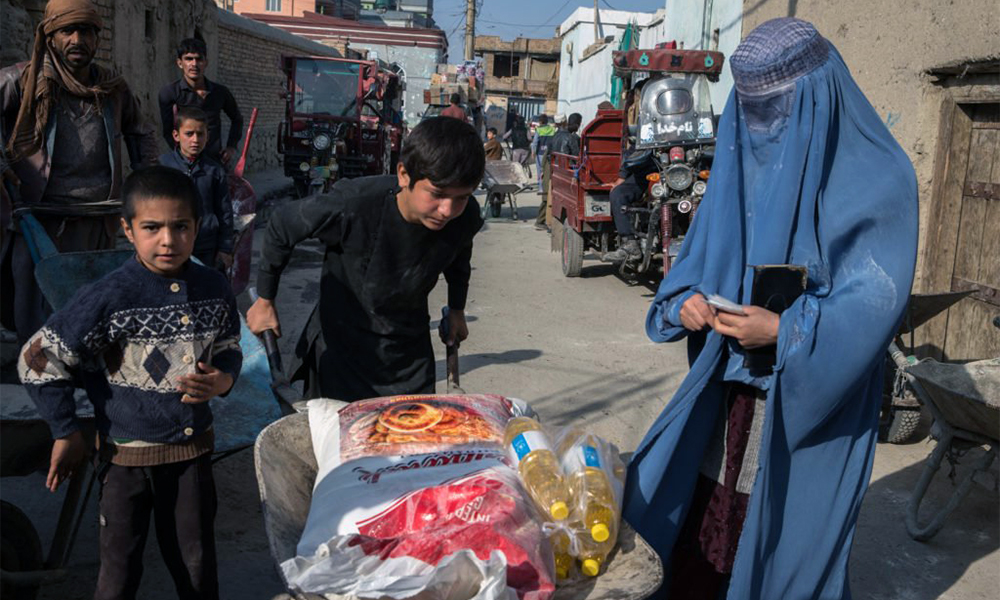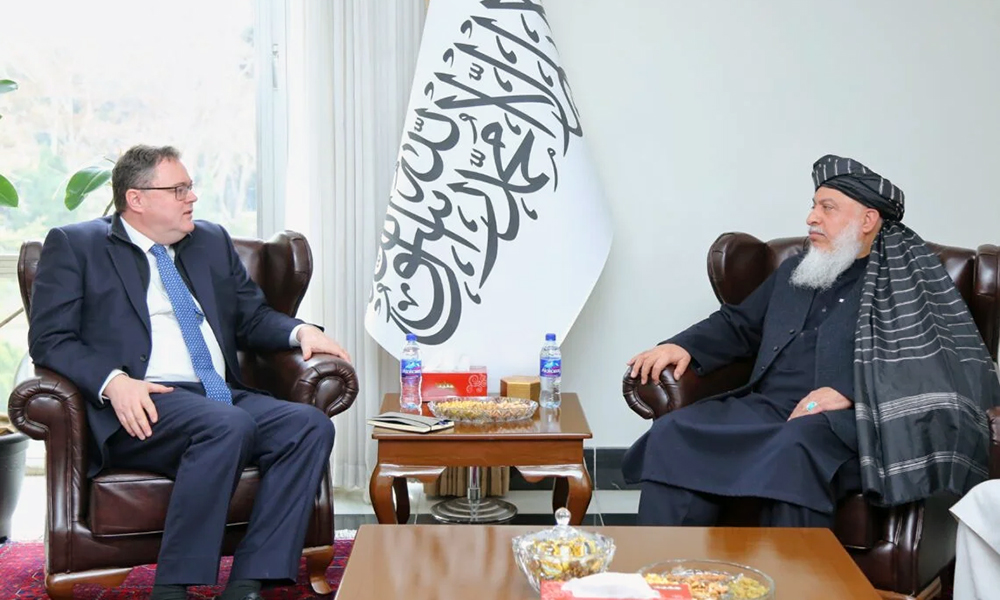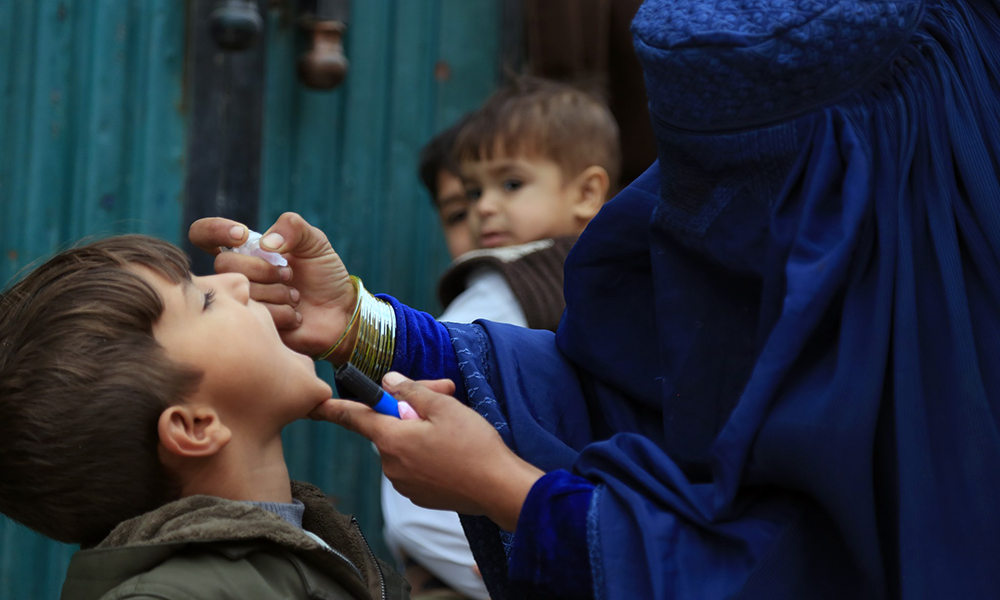Latest News
Afghanistan could become a ‘forgotten crisis’, aid agencies warn
Humanitarian actors in Afghanistan assess that inaction from the international community is costing the most vulnerable Afghans dearly.

Heavily dependent on humanitarian aid, Afghans are trapped in cycles of poverty, displacement, and despair; and Afghanistan is at risk of becoming a forgotten crisis without international support, a group of 10 aid organizations said in a statement Tuesday.
The organizations stated that Afghanistan desperately needs long-term development assistance to address the root causes of poverty.
Signatories to the statement warned that shrinking humanitarian funding is adversely impacting people’s daily lives, and a lack of funding for medium and longer-term programming has only heightened underlying vulnerabilities, adding to the humanitarian burden.
“Already this year, 343 mobile health teams have shut down, which equals 52% of all mobile health teams. This has had a significant impact on the health and nutrition response, as populations are not able to access essential lifesaving services,” warned Action Against Hunger (ACF), CARE International (CARE), the Danish Refugee Council (DRC), International Rescue Committee (IRC), INTERSOS, Islamic Relief Worldwide (IRW), Norwegian Refugee Council (NRC), People in Need, Save the Children International, and World Vision International (WVI).
These agencies underscored that the ongoing crisis in Afghanistan cannot be addressed with humanitarian assistance alone and a comprehensive, sustained, and contextualized response from the international community is required. “Diplomatic engagement is crucial to creating an enabling environment in Afghanistan that will support upscaling international aid efforts to include development projects alongside emergency assistance,” the statement read.
“The current isolationist approach of most donor countries does not support durable solutions to the challenges faced by the people of Afghanistan, especially children, women, ethnic and other marginalized groups.”
Millions of Afghans continue to struggle in one of the world's largest and most complex humanitarian crises, three years after the change in power.
While security has greatly improved in the country in this time, Afghanistan continues to experience shock after shock - the ongoing economic crisis, the legacy of decades of conflict, the impacts of climate change, and the gender crisis have taken a devastating toll on the country.
Humanitarian actors in Afghanistan assess that inaction from the international community is costing the most vulnerable Afghans dearly.
“Without rapid efforts to increase diplomatic engagement and longer-term sustainable funding, Afghans, especially women and girls, will be left to suffer for years to come.
“Poverty is nearly universal, and humanitarian needs are rising due to the ever-growing economic crisis, the impacts of climate change, the gender crisis, and diminishing aid,” the statement read.
In line with this, the organizations collectively called for an increase in humanitarian and diplomatic engagement with the Islamic Emirate of Afghanistan (IEA) to improve their ability to reach all people in need, provide aid effectively, efficiently, and equitably, and push the IEA to adhere to international human rights standards, including their obligations towards all genders of the population.
They also called for long-term relationship building and continuous engagement with the IEA in order to address Afghanistan’s most fundamental challenges.
“To avoid the country falling into deeper poverty and isolation, donors must bolster the return of development and longer-term programming and funding to build resilient communities that are less dependent on aid,” the statement read.
They also pointed out that donor governments should continue to reassure financial service providers that they are able to facilitate transactions into and within Afghanistan, increasing private and public confidence in doing business in Afghanistan and easing the current impediments to the transfer of funds into the country.
Currently, there are an estimated 23.7 million people in need of humanitarian assistance in Afghanistan and despite the severity of needs, only 25 percent of the $3.06 billion required for the humanitarian response has been funded so far this year.
Latest News
Norwegian Chargé d’Affaires meets with IEA deputy foreign minister
Welcoming the diplomat’s visit to Kabul, Stanikzai underscored the importance of political relations between Afghanistan and Norway, the foreign ministry said in a statement.

The Norwegian Chargé d’Affaires for Afghanistan, Per Albert Ilsaas, on Saturday met with IEA’s Deputy Foreign Minister for Political Affairs, Sher Muhammad Abbas Stanikzai, in Kabul.
Welcoming the diplomat’s visit to Kabul, Stanikzai underscored the importance of political relations between Afghanistan and Norway, the foreign ministry said in a statement.
In addition to focusing on bilateral political, humanitarian, and other pertinent issues, the two sides expressed hope that continued engagement would lead to constructive solutions to related issues.
This comes two weeks after the Foreign Ministry Spokesman Abdul Qahar Balkhi expressed disappointment regarding the decision by the Norwegian government to downgrade diplomatic relations with Afghanistan.
Balkhi said in a post on X that such decisions should not be linked with internal affairs of other countries.
“Diplomatic engagement is most effective when it fosters mutual understanding and respect, even amidst differing viewpoints,” he stated.
“Access to consular services is a fundamental right of all nationals. We strongly urge all parties to prioritize this principle in the spirit of international cooperation,” he added.
Latest News
A new polio vaccination campaign is set to launch in Afghanistan
Afghanistan and Pakistan are the only two countries in the world where polio has not been eradicated.

The “Afghanistan Polio-Free” organization announced that a new round of polio vaccinations will begin on Monday, December 23, in various provinces of Afghanistan.
The organization did not specify which provinces will be targeted or how long the vaccination campaign will last.
Afghanistan and Pakistan are the only two countries in the world where polio has not been eradicated.
On December 4, 2023, the World Health Organization (WHO) issued a statement reporting a 283% increase in polio cases in Afghanistan. According to the WHO, the number of positive environmental samples for wild poliovirus type 1 in Afghanistan in 2024 reached 84, compared to 62 cases in 2023.
The Ministry of Public Health claimed in November 2024 that no new cases of polio had been reported in Afghanistan for the year.
Latest News
G7 envoys urge national dialogue for lasting stability in Afghanistan

Special Representatives of the Group of Seven (G7), including the European Union, have emphasized the importance of a national dialogue for achieving long-term stability in Afghanistan.
Following a meeting on Afghanistan in Geneva, Switzerland, G7 special envoys issued a joint statement calling for the restoration of women's rights and urging the Islamic Emirate to fight terrorism.
The statement reads: "Achieving sustainable peace and stability requires credible governance that represents all segments of Afghan society."
The representatives also expressed concern over the IEA’s decision to ban girls from attending medical institutes, warning that it will have devastating consequences for the citizens, particularly mothers and their infants.
The statement described this ban as unacceptable and called on the Afghan authorities to lift it immediately.
Earlier, countries and international organizations had called for the removal of restrictions on the education and employment of women and girls, emphasizing the need for a national dialogue.
In response to these concerns, IEA has repeatedly stated that it will not allow interference in the internal affairs of the country.
The G7 special envoys also expressed their concern about the recent terrorist attacks in Kabul and the surrounding region, warning that terrorism remains a serious threat to Afghanistan's security. They confirmed the actions of the IEA against Daesh but stressed the need for more decisive measures.
-

 Sport5 days ago
Sport5 days agoLanka T10: All three matches abandoned due to rain
-

 Latest News5 days ago
Latest News5 days agoIndia hoping to import coal and marble from Afghanistan
-

 Sport4 days ago
Sport4 days agoZimbabwe’s opening ODI against Afghanistan abandoned
-

 Latest News5 days ago
Latest News5 days agoJapan announces $27.5 million aid package to Afghanistan
-

 Latest News1 day ago
Latest News1 day agoAfghan men must stand with women to support viable future of country: US envoy
-

 World3 days ago
World3 days agoNorth Korean troops suffer 100 deaths, struggling in drone warfare, South Korea says
-

 Latest News3 days ago
Latest News3 days agoTwo horror accidents on Kabul-Kandahar highway leave 52 dead
-

 International Sports4 days ago
International Sports4 days agoLanka T10: Kandy Bolts in at 4th spot in playoffs after thrilling day
























